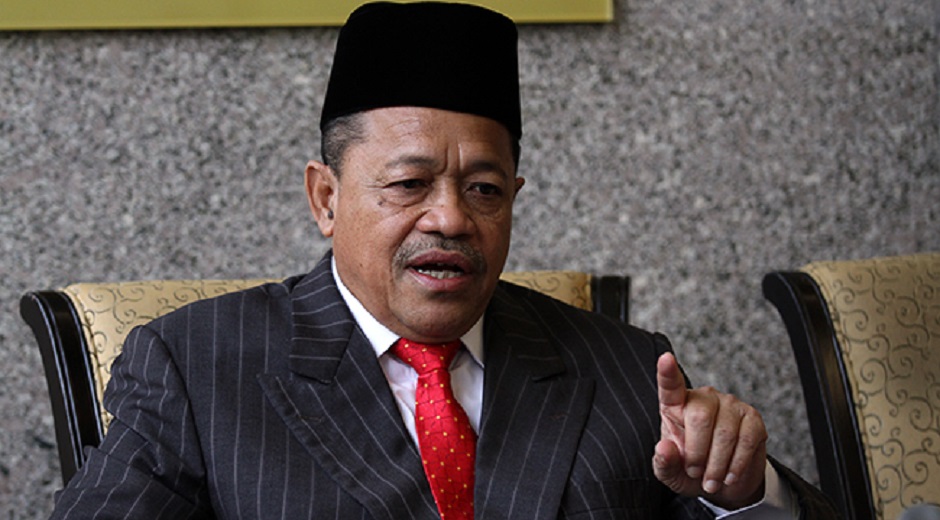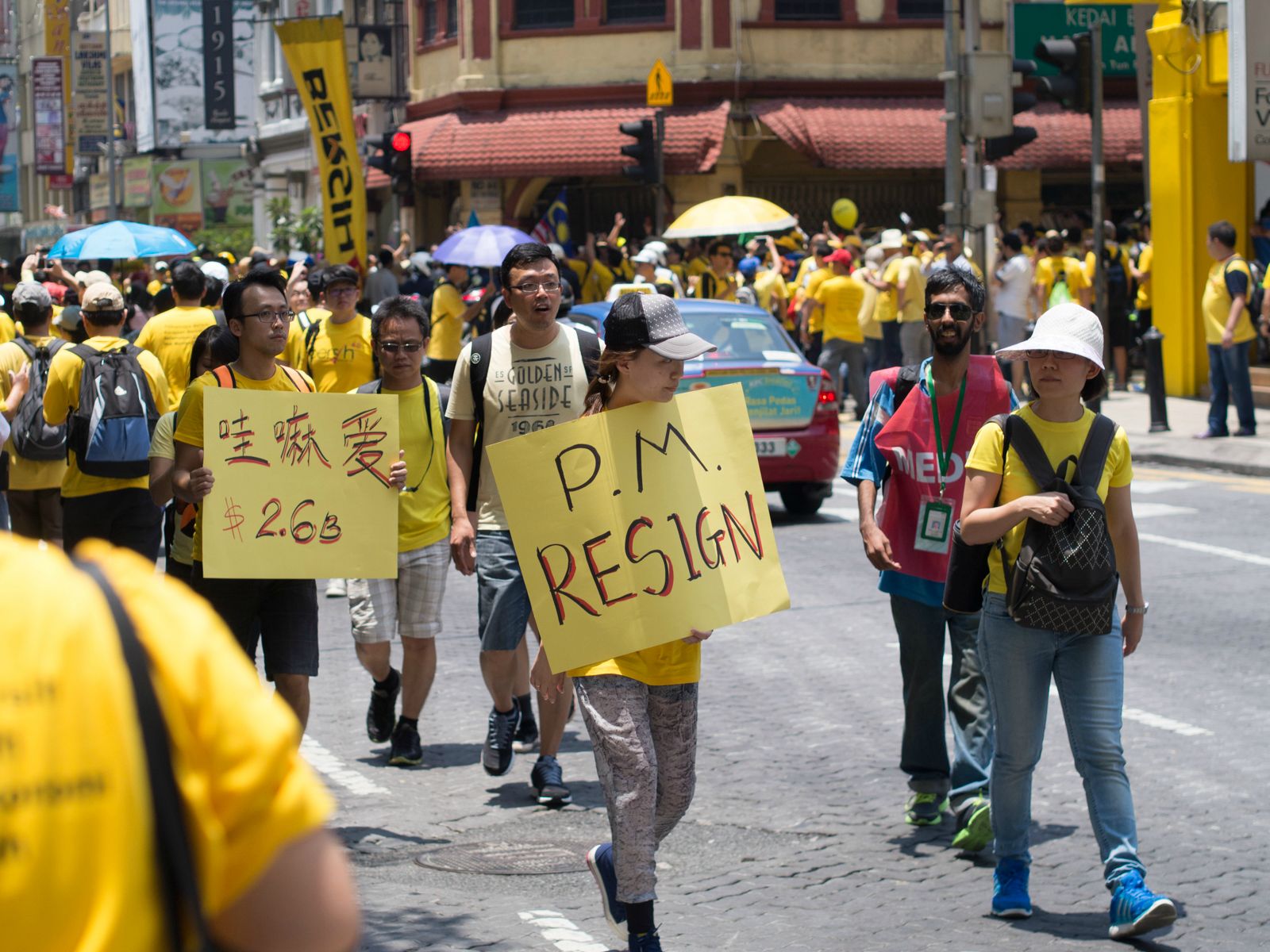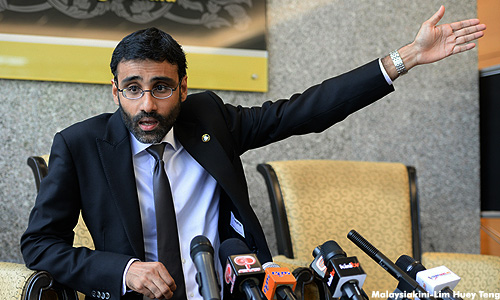What BN's New National Security Council Bill Actually Means And How It Affects Malaysians
It will be headed by the PM while the DPM will be its Deputy Chairperson.
On 1 December 2015, Minister in the Prime Minister's Department Shahidan Kassim tabled a new bill for its first reading in Dewan Rakyat. It gives the National Security Council (NSC) extensive powers to deal with national security issues, reported Malaysiakini.
Following which, the House has passed the Bill on 3 December.
It still has to be passed by the Dewan Negara before it becomes a law. In the meantime, these are the steps through which you can hope to stop the Bill from becoming a law.
Pakatan Harapan MPs have called the new National Security Council Bill a "death sentence" to democracy in Malaysia. They said that they would fight "tooth and nail" against the new NSC Bill, which provides wide-ranging powers to PM Najib.
The bill gives powers to the council headed by PM Najib to arrest anyone without a warrant once an area is declared a security area.
For example, the eight-member NSC headed by PM Najib can declare Dataran Merdeka a "security area" and instantly make participants in gatherings, such as Bersih rallies which are considered as "anti-government" by UMNO and BN, subject to arrest.
Basically, as Ram Anand in his TMI article points out:
The NSC Bill gives the PM the power to impose "emergency-like" conditions, WITHOUT the same safeguards as under Article 150 of the Federal Constitution, the Yang di-Pertuan Agong must be satisfied that there is a need for a declaration of emergency. Whereas, the NSC Bill DOES NOT require the Agong's consent for an area to be declared a "security area."
The bill, while providing special powers to security forces deployed to a security area, will also make the NSC Putrajaya's central authority for considering matters concerning national security
The bill tasks the NSC with formulating policies and strategic measures relating to national security. This includes sovereignty, territorial integrity, defence, social, political and economic stability, strategic resources and national unity. The NSC is empowered to control and coordinate government entities on operations concerning national security and issue directives to them on these matters.
The NSC, the Director of Operations or any member of the Security Forces or the personnel of other government entities will be protected from legal proceedings and suits relating any act, neglect, default or omission done or omitted by them in good faith in such capacity.
The PM can also formulate regulations for security areas to control the movement of people, vehicles, to prohibit certain activities, to taking possession of the property as well as to demolish unoccupied buildings. Furthermore, it will be an offence if the regulations are not complied with. Anyone who violates the regulations will face imprisonment of up to five years or a maximum fine of RM100,000.
In essence, as argued by PKR Parliamentarian N Surendran, who is Padang Serai MP, the new NSC Bill "gives arbitrary, extensive and dangerous new powers to the PM personally, and to the new 8-person National Security Council proposed under this Bill"
What is more unusual, he said, is how the prime minister is given the enormous power to declare security areas when public order comes under the home minister.
“There appears no precedent for this in our legislative history. The Bill thus leads to an excessive concentration of powers in the hands of the prime minister. It is unacceptable under our democratic system that the prime minister is given such powers.”
Citizens would also have no legal recourse to courts against wrongful acts committed by the NSC, Director of Operations or security forces.
“This new Bill is entirely unnecessary and excessive. There are stringent laws already available dealing with serious threats to the nation, including Prevention of Terrorism Act (Pota) and Security Offences (Special Measures) Act (Sosma). There are no existing threats to our nation, whether internal or external, that even remotely justify these drastic new powers."
"The new NSC Bill will establish a dictatorship rule"
From Lawyers for Liberty's Executive Director Eric Paulsen, PKR MP Nurul Izzah Anwar, Human Rights Watch (HRW) Deputy Director for Asia Division Phil Robertson to Former Prime Minister Dr Mahathir Mohamad all agree on one point that the new NSC Bill 2015 will establish a dictatorship rule in Malaysia.
“The Bill is a sure recipe for abuse of power and human rights and is more akin to establishing a dictatorship rule."
Paulsen said PM Najib already had enough power through the Prime Minister’s Department, his Cabinet and Ministries and with anti-terrorism laws such as Pota and Sosma. “Why is he seeking to widen the ambit of his executive power?” he asked.
"We need to submit the Bill to the purview of a select committee. Security is a growing national regional and global concern ― the executive cannot bulldoze their ridiculous notion of dictatorship onto the legislature," she told Malay Mail Online.
Phil Robertson:
“Given the incredible range of broad and abusive laws already being used by Prime Minister (Datuk Seri) Najib (Razak) and his government to arrest and harass government critics, the breadth of the bill’s language is truly frightening,” he said in a statement.
“The law is far broader than can be justified by any real threat to Malaysia’s national security, and creates a real risk of abuse in the hands of Prime Minister Najib and his embattled government.”
“Now we know what the path to Malaysian dictatorship looks like,” Robertson said.
“I think currently the power is too much already, we add some more, then we will have a dictatorship,” the country’s longest-serving prime minister told reporters at the sidelines of a book launch by his wife Tun Dr Siti Hasmah Mohd Ali.
He then agreed if the introduction of the law was regressive and a return to the days when Malaysia had been under colonial rule. “Well, looks like it, there was no democracy under the British, we were ruled from London,” the former PM said.



